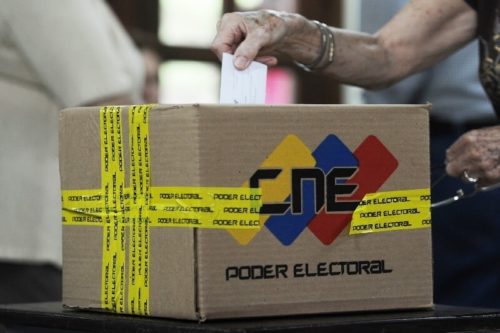On June 16, Nicolás Maduro exalted the role of his deceased predecessor as a promoter of policies for gender equality and against gender-based violence. Regarding the latter, however, the action of the State and in particular the Supreme Court of Justice (TSJ) seems to be focused on gestures rather than concrete transformative actions, making evident the loss of the fight against gender-based violence by the Venezuelan justice system.
This is the conclusion of a report by Venezuelan NGO Acceso a la Justicia (Acess to Justice) on the “Myths and Realities of Violence Against Women in Venezuela: History of another failure of the Judicial Power”, in which it analyzed the jurisprudence of the Criminal and Constitutional Courts of Cassation since 2015, with the purpose of determining whether the justice system is helping to protect the life and physical and mental integrity of women, or if sexist biases persist in the legal reasoning.
The findings were revealing. For example, the research found ten rulings where the judge’s intervention was perceived to be “contrary to the interests of women, or where prejudices, roles, or stereotypes are perceived against women as protected subjects”.
An example of these rulings is sentence 108 dated February 26, 2016, in which the highest court corrected a court of first instance that refused to prosecute a case of femicide on the grounds that the victim was allegedly a sex worker. Even though the governing body of the Judicial Power corrected the malpractice, it neither reprimanded nor admonished the judge for deviating his reasoning from the provisions of the Organic Law on the Right of Women to Life Free of Violence, which was approved in 2008 and amended in 2014, as highlighted in the investigation.
Likewise, the report mentions two other rulings of the Criminal Court of Cassation that failed to observe the principle of intersectionality, which refers to “the coexistence of contextual elements that concurrently victimize women (poverty, belonging to an indigenous ethnic group, having a disability, power relations, etc.)”.
Six other rulings were found in which the Supreme Court committed serious violations of the rights of women that distorted their cases and made it not serve the purposes established by law, given that the judicial processes re-victimized the plaintiff, judicial delay or Key elements of the process were omitted.
Positive, but insufficient
In the report, Acceso a la Justicia highlighted both the shortcomings of the highest court in recent years and the steps in the right direction. Thus, after reviewing sixteen rulings of the Constitutional Chamber on the matter, the organization observed that several of them seem to go in the right direction, including one ruling that allows the collection of testimonies of children and teenagers as early evidence in order to avoid revictimization; the ruling that provides for the possibility that the victims may present their own private accusation in some circumstances; or the one that annulled an article of the Criminal Code that referred to the “honesty” of women.
However, the report also makes it clear that these decisions are insufficient and highlights that the Supreme Court has ignored the advances of the region on the matter, in particular concerning reparations.
“In our country, judicial decisions focus exclusively on punishment without incorporating an element of reparation. What is related to reparation is not a proposal or an innovation, but an established international standard so that its inclusion is not at the discretion of the state.”
The report admits that it is not very usual for victims in Venezuela to demand reparations from the State. The reason is mentioned in the report:
“Getting a conviction is difficult enough to add another concern to the victims, so it is a task pending in the training of professionals and organizations related to the issue to include it so that it is a permanent presence of the matters to be decided by the court.”
The document also highlights that the authorities of the judicial system have disregarded international jurisprudence on the matter, in particular the Inter-American Court of Human Rights. The international court condemned Venezuela in 2018 for a case of gender-based violence related to Linda Loiza López’s case. This case became known in 2001 when the young woman was rescued from the building in eastern Caracas where Luis Carrera Almoina had her kidnapped, mistreated, and sexually abused.
How does it affect Venezuelans?
The report makes it clear that the action of Venezuelan justice is far from ideal when it comes to sanctioning crimes of which women are victims simply because of their gender. Likewise, it notes that there are major deficiencies, such as the fact that the justice system has not incorporated the term reparation into its lexicon and remains far from complying with international standards by failing to understand women’s rights as human rights, provide reparation to the victims, and observe gender perspective and intersectionality.
The investigation reveals that the fight against gender-based violence in Venezuela is more talking than action, which opens the door for the repetition of gender-based crimes, more mourning, and more broken families.
Read the full report in English HERE or find its executive summary in English HERE.
Translated by José Rafael Medina




